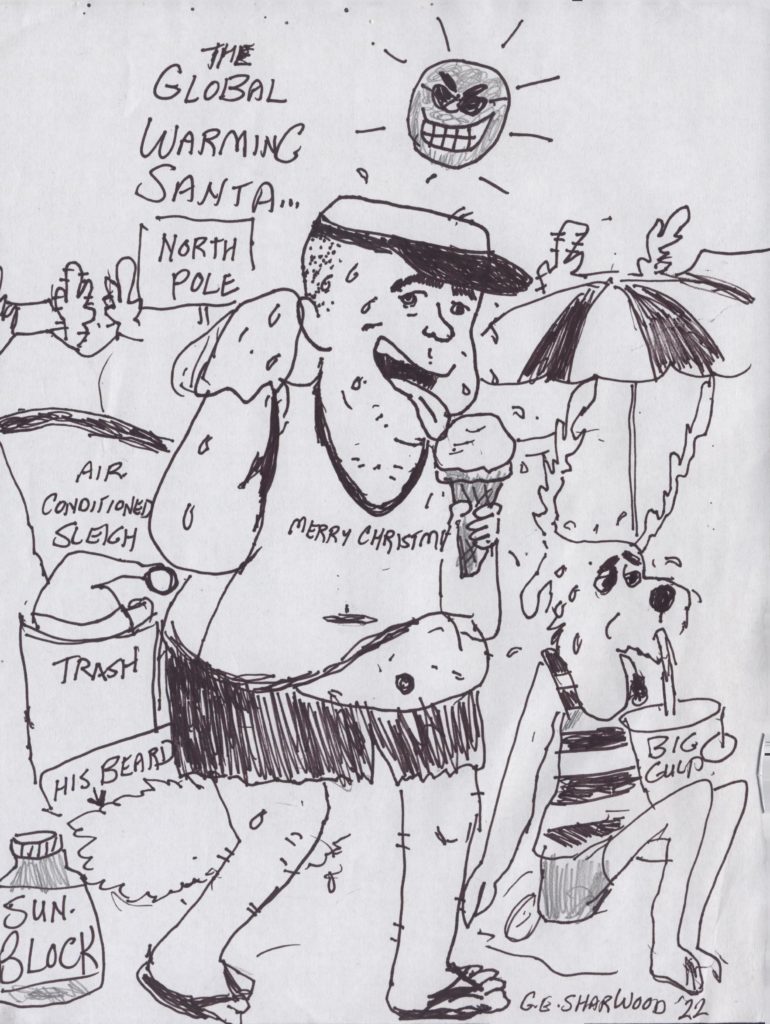

Voters rejected four local sales tax measures last month. Millions of dollars later—much of it in public funds—they have perhaps taught local leaders some valuable lessons, at least those who have learned to learn from losing. They are few and far between.
Proposals for transportation in Fresno and Madera counties, football stadium renovation and technical career programs at Fresno State, and a veterans district in the City of Fresno all might have succeeded at the polls, yet none did. Three of the four failed to clear the usual two-thirds majority bar, whereas the citizens’ petition-generated college tax needed just a simple majority yet yielded less than 47% support.
The consultants paid with tax dollars to run voter surveys and “public education” campaigns right up to election day have by now come up with many reasons why their predictions of inevitable success fell short: inflation, gas prices, organized opposition, a surge in voting by people they overlooked, low participation by others, etc.
But backers of Measure C, the Fresno County half-cent sales tax for transportation, had been assured by an enthusiastic pollster that only 10% of voters were firmly opposed to a 30-year extension to an existing 20-year tax not ending until 2027. Traditionally, the bedrock anti-tax vote in Fresno County is considered to be around 20%. The more conservative Madera County’s Measure T committee heard much the same thing: greater than 80% voter support for a ½-cent “forever tax” that would last “until ended by voters.” Challenge accepted. Only 54% of Madera voters backed it, threatening to end it forever.
At work behind the scenes is a desperate desire to grandfather-in outdated highway projects before state and federal funding guidelines are changed. Staff at transportation planning agencies in Madera and Fresno counties convinced the elected and appointed members of their boards to push on, to ignore the polls and their earlier advice regarding the opposition death knell. Behind it all was a cadre of road-subsidy seeking developers of industrial warehousing and sprawl neighborhoods.
Measure E to take Fresno State from “good to great” was a miserable failure by any measure. Its backers never offered the public a convincing argument that one county alone should support a state college serving a large region, and the proposal was largely the idea of one man, Richard Spencer of Harris Construction, whose top priority was renovation of the college’s football stadium. He poured more than $1.2 million into the effort coordinated by political operator Tim Orman who left Mayor Dyer’s office to run the campaign.
The most widely supported sales tax of the four was the Fresno-only Measure M. Intended to create a needed veterans district for the whole city, unfortunately the effort was led by southeast Council Member Luis Chavez. He ineptly attempted to fund the campaign with $400,000 in public funds to yet another local political operative, but the city received a letter from the Howard Jarvis Taxpayers Association pointing out that L.A. County recently paid a $1.3 million fine for such unlawful activity. The funding proposal was dropped. The tax earned 59% voter support, highest of the four initiatives.
While Measure E is surely dead and gone and M might rise again, C and T will definitely be back, possibly as soon as 2024, according to both sides in the battle over future funding priorities for roads, transit, safe routes to school and more. So elected officials, agency staff and consultants who led the failed efforts in 2022 should apply the following rules to their future efforts:
No. 1: Never exclude community. The strongest trait shared by all four tax renewal committees was a closed-door process. The Measure C Renewal Executive Committee in Fresno County began in secrecy, fought steadfastly against including representatives from community-based organizations, and spent in excess of $700,000 on a false community outreach effort. It was not alone.
No. 2: No phony citizens’ petitions. Measure E’s campaign strategists clearly believed the 50% voter support threshold could be easily crossed. They enlisted paid signature gatherers to take advantage of the legal precedent established by Measure P, which says the two-thirds majority requirement only applies when the measure is placed on the ballot by elected officials. When the people do it by petition, 50% plus one is all you need for approval. However, Measure E proved to be an astroturf effort easily defeated by conservative opposition and under the weight of its overly prescriptive language for the college.
No. 3: No campaigning with public funds. The League of Women Voters of Fresno objected to the City of Fresno plan to spend $600,000 in public funds on “public education” for Measure C and Measure M in the final six weeks of campaigning. An obvious violation to many, it took the taxpayer association’s letter to stop them. The Fresno County Transportation Authority and Madera County Transportation Commission have yet to answer for some very questionable practices.
No. 4: No forever taxes. Unbelievably, pollsters assured local politicians that voter support was not affected by removal of a sunset clause, but that’s apparently all it took to pull down Madera’s Measure T. The no “forever tax” argument—coupled with no public process and road subsidies for all the wrong people—brought in a lowly 54% level of support despite no formal opposition. There was a determined grassroots campaign against it.
No. 5: You’re not making sausage. Local lawmakers repeatedly—mistakenly—told audiences that this was how things work as they clumsily hacked out compromises in real time, that they were just making sausage. But that old saw only applies to legislative bodies that have the final word, the final vote. This time it was voters making sausage, and they’re not done.
For any chance of success, the details of every one of these proposals needed to have been developed in a patient, transparent, inclusive manner. The community-wide support and goodwill generated by a healthy process can produce a proposal capable of clearing any bar. Opposed to such a practice are self-interested developers and the politicians who serve them first and everyone else second. They are many and close together.
